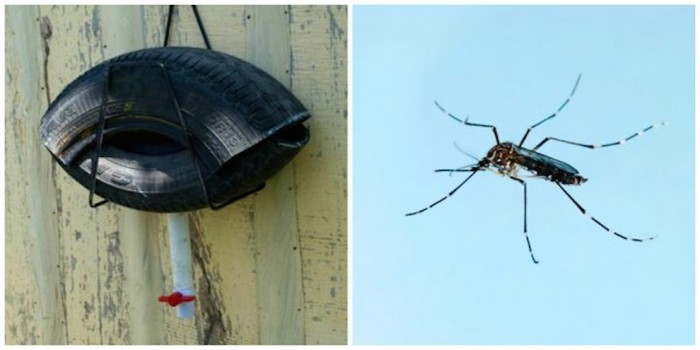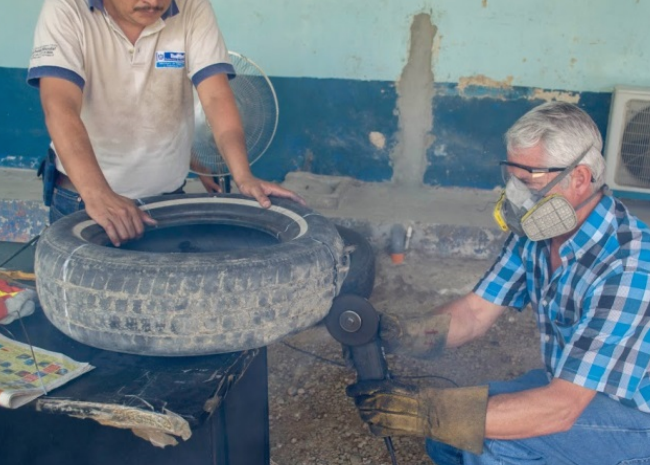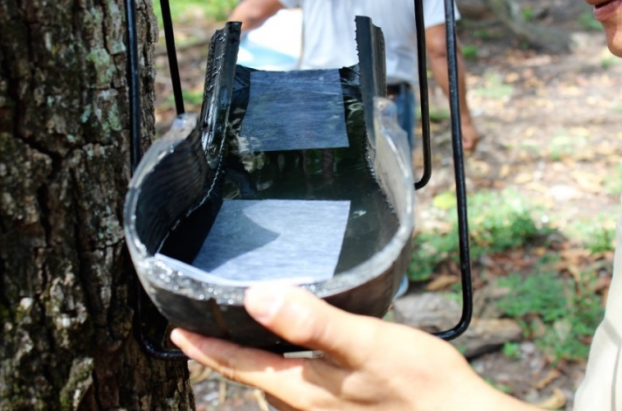
To halter the spread of viruses transmitted by mosquitoes, a team of researchers and scientists backed by Grand Challenges Canada has developed ovillanta, a low-cost mosquito-trapping device designed with an old car tyre. Ten months of testing in Guatemala has produced positive results that prove the device is far more effective than most existing trapping or pesticide methods.
Gerardo Ulibarri of Laurentian University led the research project in collaboration with Angel Betanzos and Mireya Betanzos of the National Institute of Public Health of Mexico, and Guatemala’s Ministry of Health. Ovillanta targets the Aedes genus of mosquito, which is recognised as the principal genus that transmits Zika, dengue and yellow fever viruses, by capturing and destroying its eggs.

“We decided to use recycled tyres – partly because tyres already represent up to 29 per cent of the breeding sites chosen by the Aedes aegypti mosquitoes, partly because tyres are a universally affordable instrument in low-resource settings, and partly because giving old tyres a new use creates an opportunity to clean up the local environment,” explains Dr. Ulibarri.
To make the trap, two 50-centimetre pieces of tyre were joined together to form a basin with a fluid release valve inside. A non-toxic milk-based solution developed at Sudbury’s Laurentian University is poured inside the basin to create a pond-like environment that lures mosquitoes into the cavity. A wooden or paper strip floats on top of the solution and provides the female mosquitoes with a place to lay their eggs.

The strip is removed twice a week so health workers can analyse and then destroy the eggs using fire or ethanol.
Researchers believe the trap to be a cheap and easy-to-maintain system that could stop the outbreak of mosquito-related virus outbreaks. Part of the project includes an online training programme to improve local health workers’ mosquito control expertise, and a community engagement strategy that involves communities in the maintenance of the trap.
During the study, the researchers were able to destroy 18 100 Aedes eggs per month by setting up 84 ovillantas in the Guatemalan town, Sayaxche. This number is seven times the roughly 2 700 eggs collected per month using alternative trapping methods. The team also found that no new cases of dengue were reported in the area, which would typically receive two or three dozen cases over a period of ten months.





